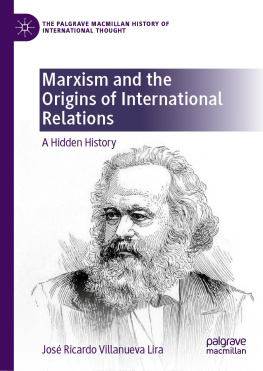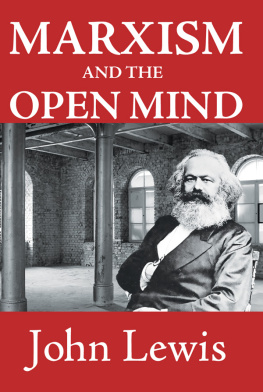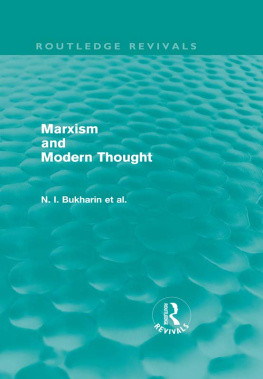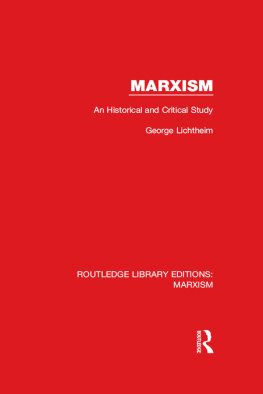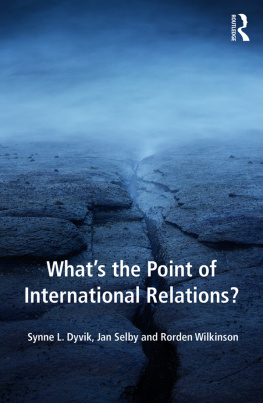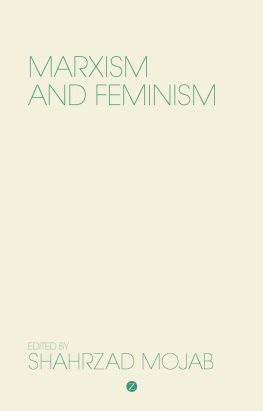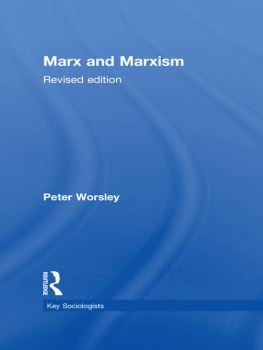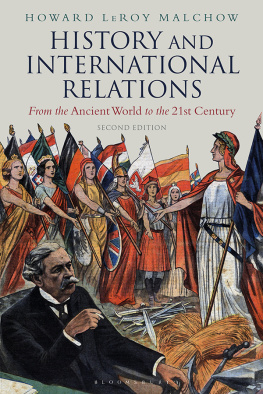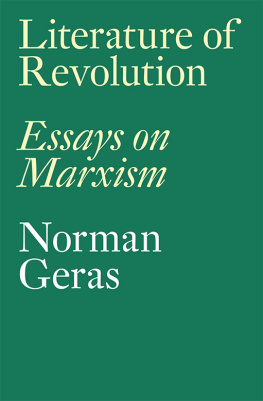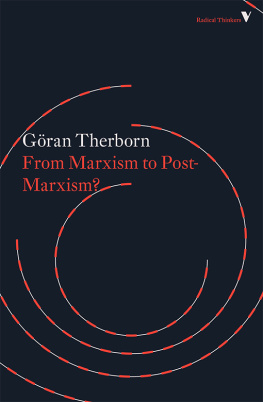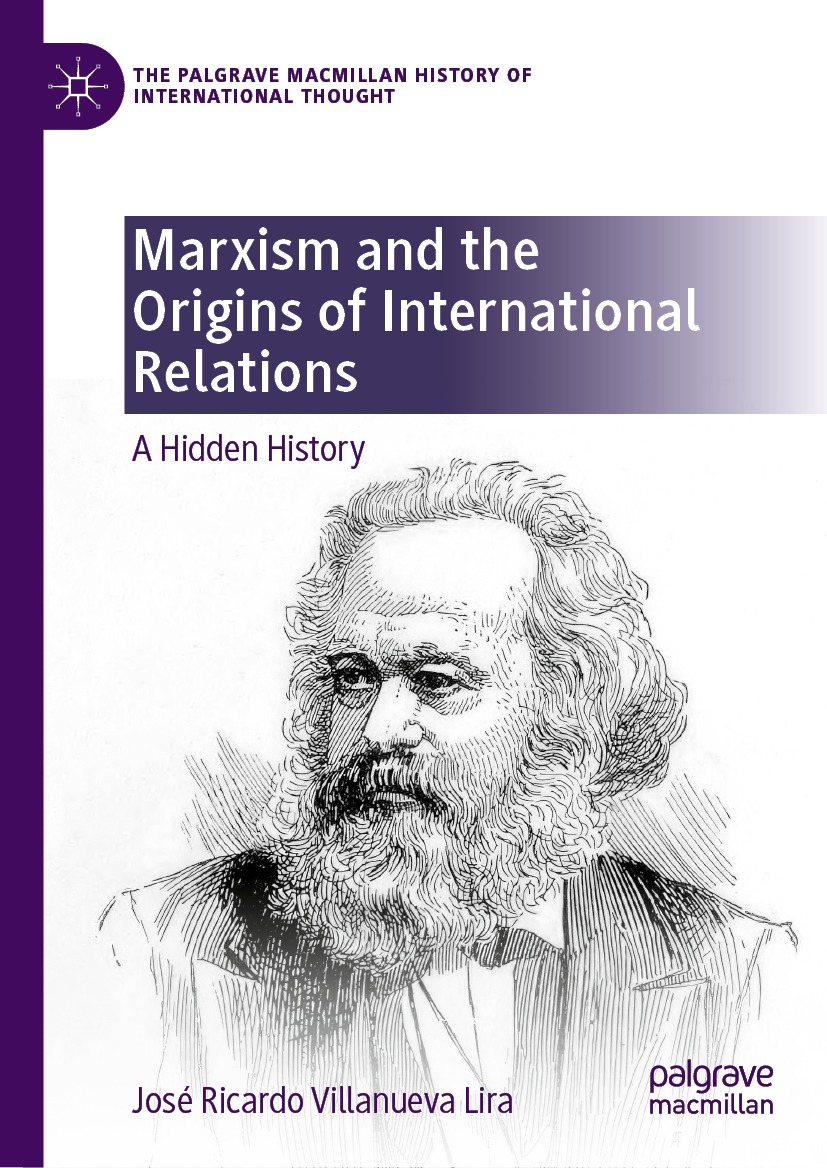The Palgrave Macmillan History of International Thought
Series Editor
Brian Schmidt
Carleton University, Ottawa, ON, Canada
The Palgrave Macmillan History of International Thought book series (HIT) publishes scholarly monographs and edited collections on the intellectual, conceptual, and disciplinary history of international relations. The aim of the series is to recover the intellectual and social milieu of individual writers, publicists, and other significant figures in either the field of International Relations or international political thought more broadly, and to assesses the contribution that these authors have made to the development of international theory. HIT embraces the historiographical turn that has taken place within International Relations as more and more scholars are interested in understanding both the disciplinary history of the field, and the history of international thought. Books that historically analyze the evolution of particular ideas, concepts, discourses, and prominent, as well as neglected, figures in the field all fit within the scope of the series. HIT is intended to be interdisciplinary in outlook and will be of interest to specialists and students in International Relations, International History, Political Science, Political Theory, and Sociology.
More information about this series at http://www.palgrave.com/gp/series/14419
Jos Ricardo Villanueva Lira
Marxism and the Origins of International Relations
A Hidden History
1st ed. 2022

Logo of the publisher
Jos Ricardo Villanueva Lira
International Relations, Universidad del Mar, Oaxaca, Mexico
The Palgrave Macmillan History of International Thought
ISBN 978-3-030-79667-9 e-ISBN 978-3-030-79668-6
https://doi.org/10.1007/978-3-030-79668-6
The Editor(s) (if applicable) and The Author(s), under exclusive license to Springer Nature Switzerland AG 2022
This work is subject to copyright. All rights are solely and exclusively licensed by the Publisher, whether the whole or part of the material is concerned, specifically the rights of translation, reprinting, reuse of illustrations, recitation, broadcasting, reproduction on microfilms or in any other physical way, and transmission or information storage and retrieval, electronic adaptation, computer software, or by similar or dissimilar methodology now known or hereafter developed.
The use of general descriptive names, registered names, trademarks, service marks, etc. in this publication does not imply, even in the absence of a specific statement, that such names are exempt from the relevant protective laws and regulations and therefore free for general use.
The publisher, the authors and the editors are safe to assume that the advice and information in this book are believed to be true and accurate at the date of publication. Neither the publisher nor the authors or the editors give a warranty, expressed or implied, with respect to the material contained herein or for any errors or omissions that may have been made. The publisher remains neutral with regard to jurisdictional claims in published maps and institutional affiliations.
Cover illustration: Keith Lance/DigitalVision Vectors/Getty Images
This Palgrave Macmillan imprint is published by the registered company Springer Nature Switzerland AG
The registered company address is: Gewerbestrasse 11, 6330 Cham, Switzerland
Series Editors Foreword
As Editor of the History of International Thought series, I aim to publish the highest quality research on the intellectual, conceptual and disciplinary history of International Relations. The books in the series assess the contribution that individual writersacademics, publicists and other significant figureshave made to the development of thinking on international politics. Central to this task is the historical reconstruction and interpretation that recovers the intellectual and social milieu within which their subjects were writing. Volumes have also traced the course of traditions, their shifting grounds or common questions, exploring heretofore neglected pathways of international theory and providing new insight and refreshed context for established approaches such as realism and liberalism. And the series embraces the historiographical turn that has taken place within academic International Relations with the growth of interest in understanding both the disciplinary history of the field and the history of international thought. A critical concern of the series is the institutional and intellectual development of the study of International Relations as an academic pursuit. The series is expressly pluralist and as such open to both critical and traditional work; work that presents historical reconstruction or an interpretation of the past, as well as genealogical studies that account for the possibilities and constraints of present-day theories.
The series is interdisciplinary in outlook, embracing contributions from International Relations, International History, Political Science, Political Theory, Sociology and Law. I seek to explore the mutually constitutive triangular relationship of international relations, theory and history. I take this to mean the appreciation of the importance of the history in the theory of international relations, of theory in the history of international relations and even of international relations in the history of international thought! In this last case, I hope that the series can become more broadly inter-cultural also, including scholarship from outside Europe and North America as well as delving into more of the non-Western context of the development of international relations theory, though I acknowledge that the Eurocentric/ethnocentric character of the field is presently mirrored in its disciplinary history.
Ricardo Villanuevas Marxism and the Origins of International Relations: A Hidden History represents another attempt to decipher the early foundations of the academic discipline of International Relations (IR). Although the book, like many others in the series, builds on the work of the fields revisionist disciplinary historians, Villanueva argues that not enough attention has been focused on the significant role that Marxism played in the early development of IR. He reminds us that that the formative years of IRs emergence as an academic field coincided with a rich and vibrant period of Marxist political thought that was largely focused on the topic of imperialism. The purpose of Villanuevas book is to explore the influence of Marxist thinking on those who were establishing the discipline of IR.
This involves revisiting those who have been dubbed the interwar idealists. Villanueva examines the writings of five so-called idealists: John Hobson, Henry Brailsford, Leonard Woolf, Harold Laski and Norman Angell. By contextualizing their writings, especially within the context of their work on imperialism, he finds that they all were deeply influenced by Marxism. This erudite study demonstrates, once again, the historiographical error of subsuming the early development of the field under the erroneous label of idealism. Not only does this study help us make sense of the fields early development and its indebtedness to Marxism and socialism, but Villanueva explores the enduring consequences of narrowly misconstruing the field in terms of dialogue solely between idealist/liberals and realists. In this manner, Villanueva makes a significant contribution to the History of International Thought series.

